Details In Seinfeld That Totally Went Over Our Heads
Created by Larry David, Seinfeld has been hailed by many as one of the greatest sitcoms to ever be aired on television. Self-proclaimed as "a show about nothing," the series follows a group of four friends with Jerry Seinfeld starring as himself and their lives in Manhattan's Upper West Side. The show is renowned for its subtleties that only die-hard fans can catch, from appearing mustard jars to extended callbacks. See if you noticed any of these!
A Reference To Jerry's Father

If given the opportunity, most of us would probably put a little bit of ourselves or our family in a television show that we were making, and that's what Jerry Seinfeld did.
In one of the episodes, Jerry and some of the gang can be seen walking down the street with a sign that reads "Kal Signs" behind them. This is a nod to Jerry's father, who, interestingly enough, actually made signs for a living.
A Lot Of Bikes With No Riders
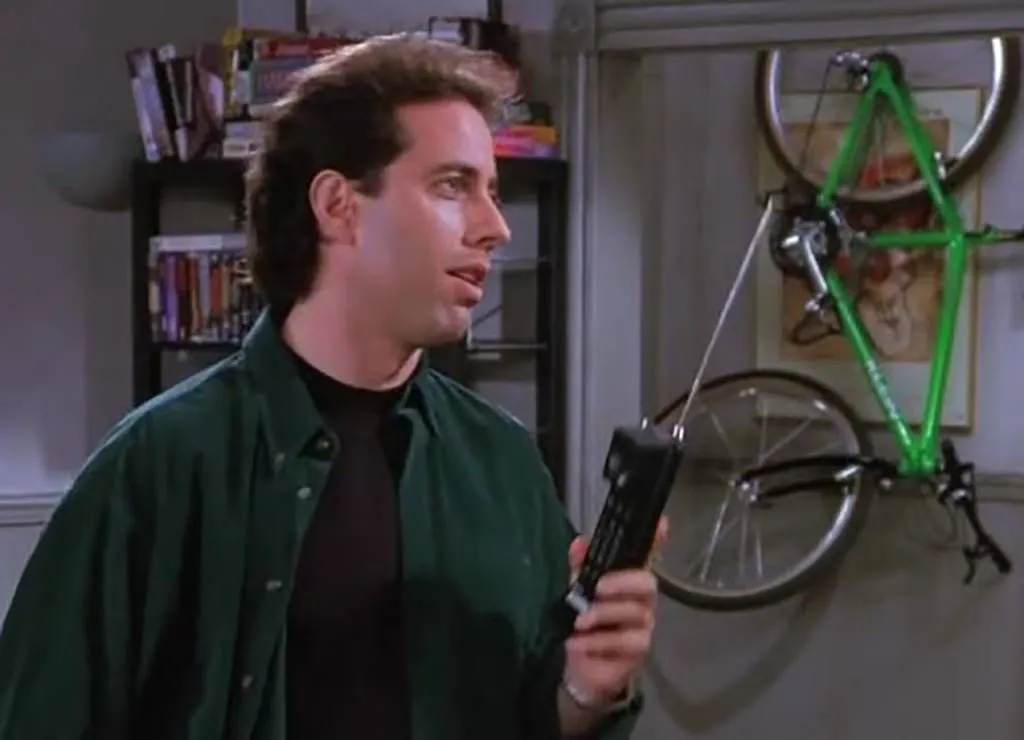
One of the most eye-catching aspects of Jerry's apartment is the bike that hangs on the wall next to his bathroom. Throughout the entirety of the show, we never actually see him on a bike or hear about him riding one.
Not only do we never see him riding it, but the bikes change over time. For most of the series, it's a green Klein mountain bike before changing to a Cannondale and then back to Klein.
The Exterior Of Jerry's Apartment

Seinfeld stands out as one of the most successful shows to take place in New York City, despite the countless other television shows that are set in the same place.
Although the show makes it obvious that it takes place in New York with all of the shots of the bustling city, skyscrapers, and building fronts, the exterior of Jerry's apartment isn't in New York at all. In fact, it's the exterior of a building in Los Angeles, California.
Jerry And His Computer
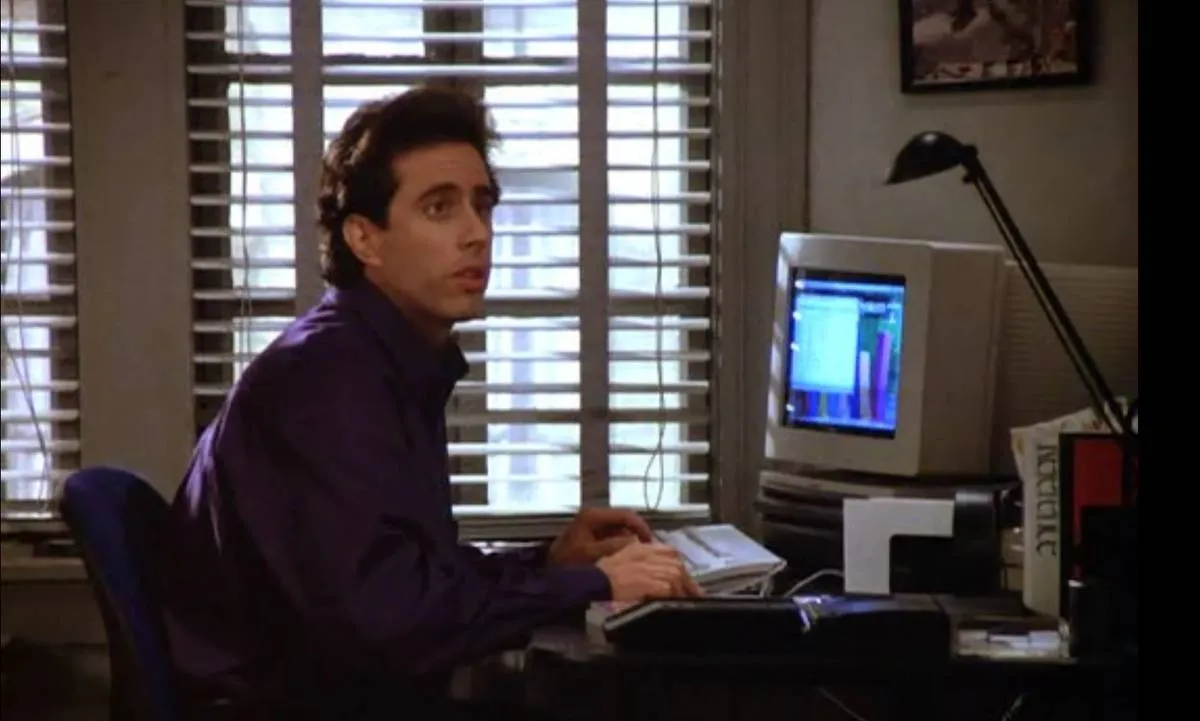
Seinfeld takes place in a time when electronics, especially computers, weren't something that everybody used all of the time. Yet, Jerry ends up dropping some money on an Apple computer that we only see him use once in the series in Season 5 episode 12.
In addition, Jerry can also be seen owning copies of Windows Excel and other Microsoft products, proving that Jerry might not have any idea what he's doing with his computer at all.
Kramer's Style
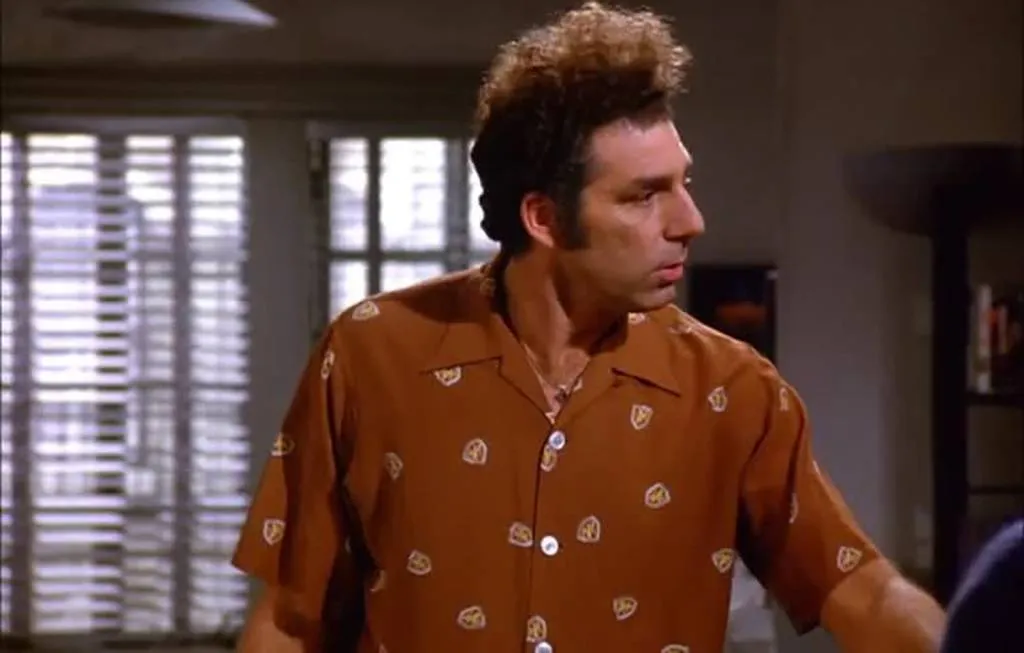
Although all of the characters in Seinfeld are quirky in their own ways, Kramer is by far the oddest out of the group. His strange personality and mannerisms are both perfectly emphasized by the wardrobe that he wears.
Although most viewers might not take a second to think about it, all of his clothes are from the 60s and 70s. Yet, this was done on purpose to give the idea that he had not purchased clothes in decades.
A Strange Amount of Props For Julia Louis-Dreyfus
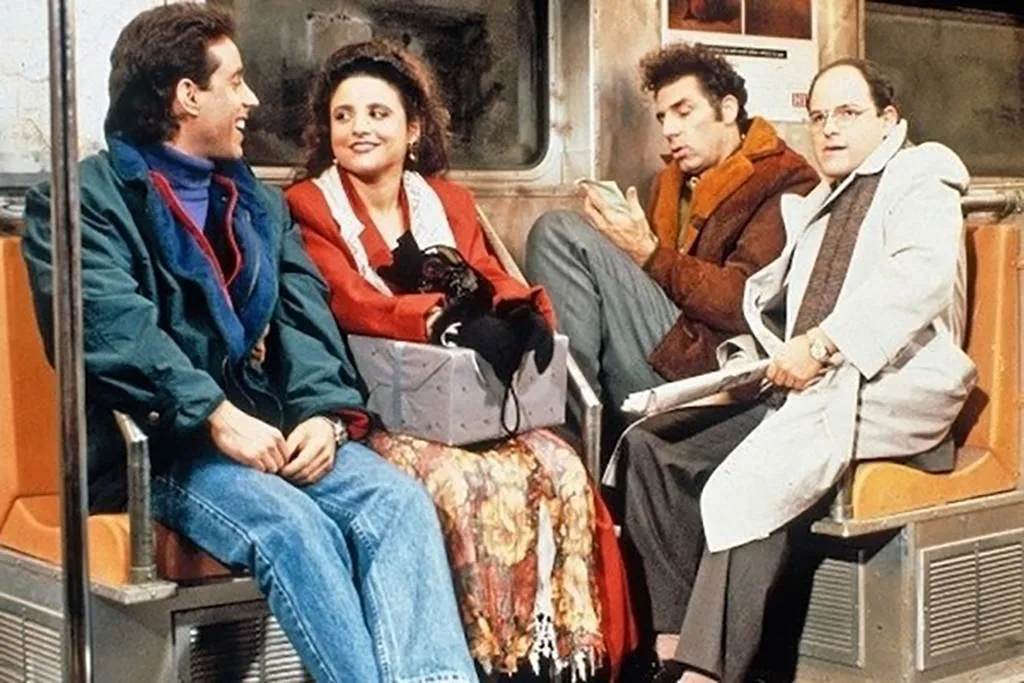
An actress getting pregnant is something that television shows have had to deal with since the medium first began. Of course, pregnancy doesn't always fit in line with the actress's character, so the showrunners have to come up with a clever way to hide the actress' condition.
This is exactly what happened to Julia Louis-Dreyfus, who became pregnant during the show, and as a solution, her character was usually seen holding some sort of prop while in front of the camera.
Kramer's Source Of Income
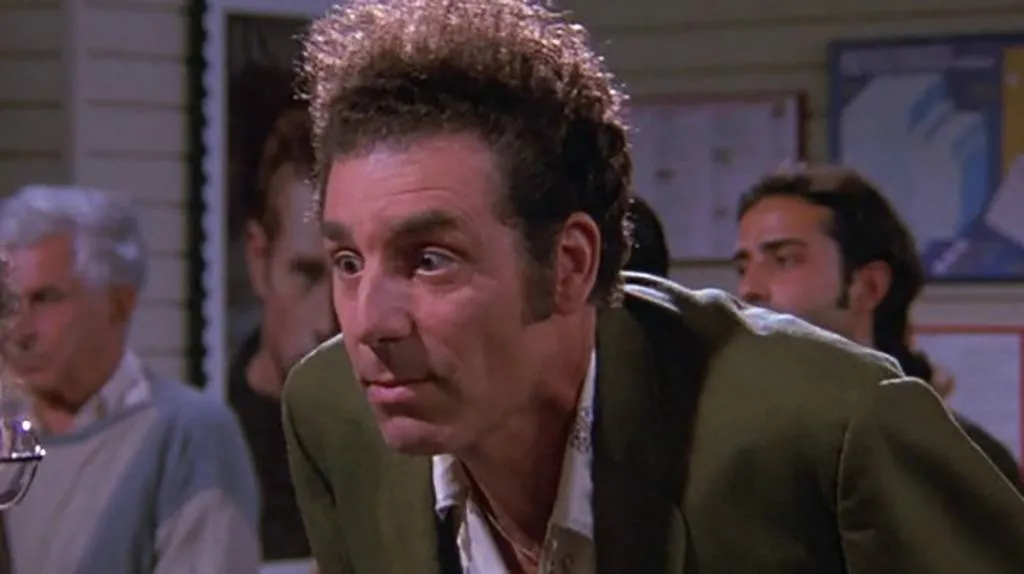
A character's profession usually adds a lot to their personality on a show, giving them something to talk about, goals to work toward, and so on. In Seinfeld, we know that Jerry is a comedian, Elaine is a writer that sometimes works for Jerry, and George has a number of jobs throughout the show.
A running gag in the show is that Kramer is always unemployed, yet the question is never answered as to what his source of income is.
The Mustard Incident
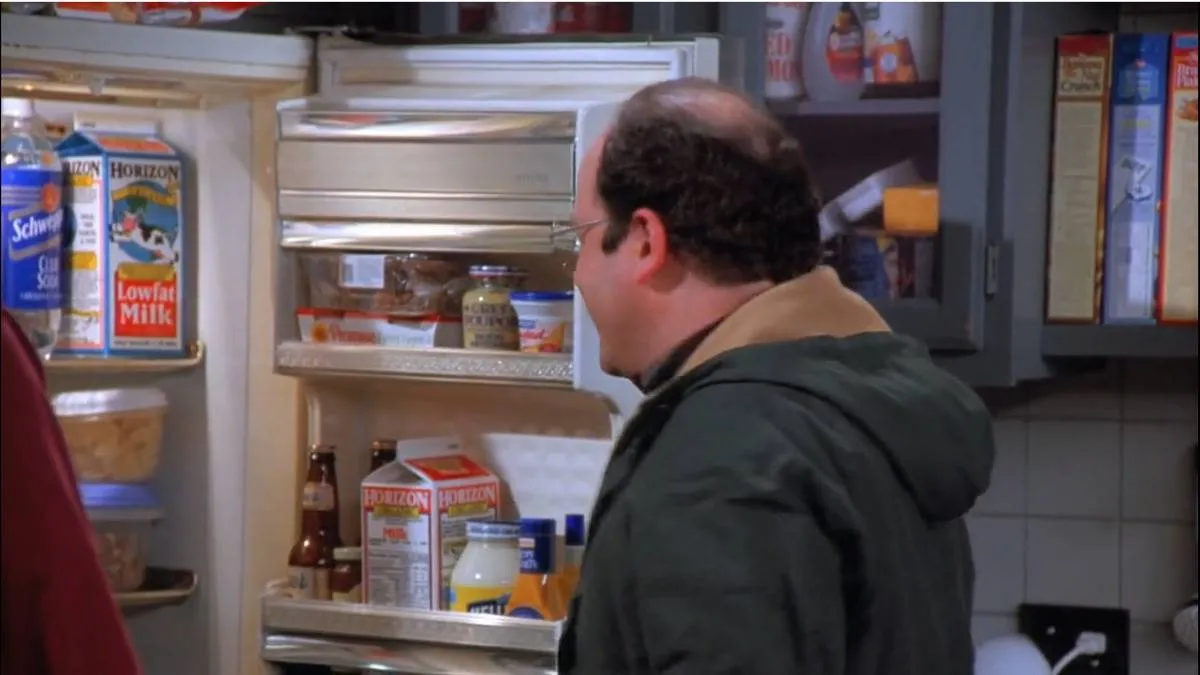
One thing that Kramer is known for throughout the show is mooching off of Jerry, constantly raiding his refrigerator whenever he feels like it and taking what he likes. In Season 7 episode 13, Kramer is in the middle of making a turkey sandwich when he stops in his tracks because Jerry doesn't have the fancy brown mustard that he likes.
This leads Jerry to jokingly apologize for not meeting Kramer's needs. Then, in episode 18 of the same season, a jar of high-end Grey Poupon mustard can be seen in Jerry's fridge.
The Disappearing Siblings Act
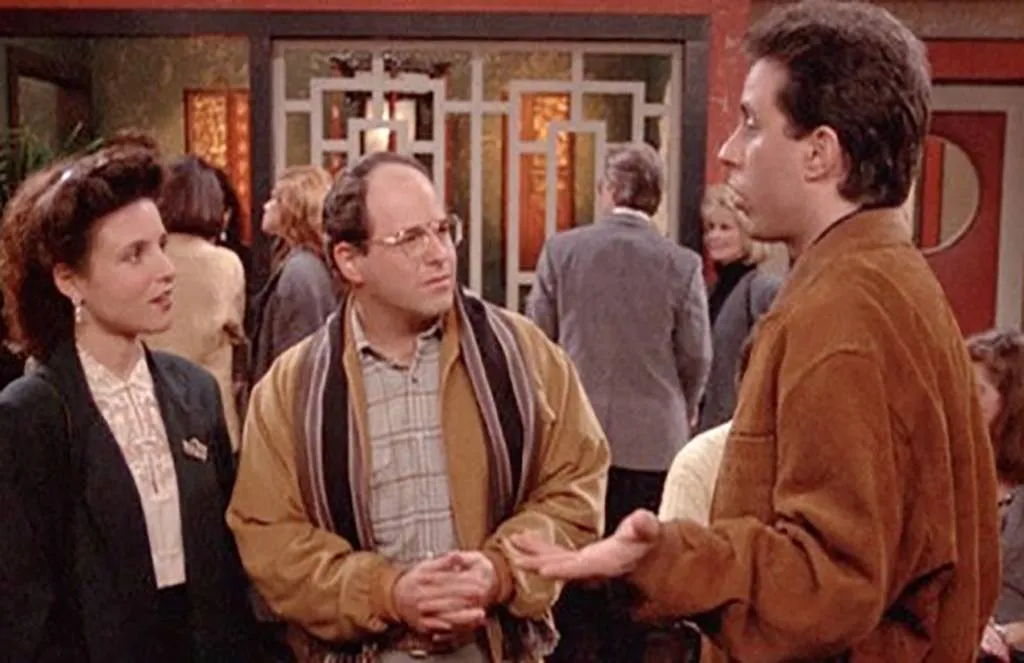
In the case of television, once something's been said, sometimes it's easier for the writers to just ignore that the characters ever said it than try to cover it up with more writing. This was what happened when it came to George, Elaine and Jerry's siblings.
At one point, each of the characters mentioned their siblings, with Elaine even name-dropping her sister, Gail. However, after that, their siblings were never mentioned again through the series' run.
References To David Berkowitz
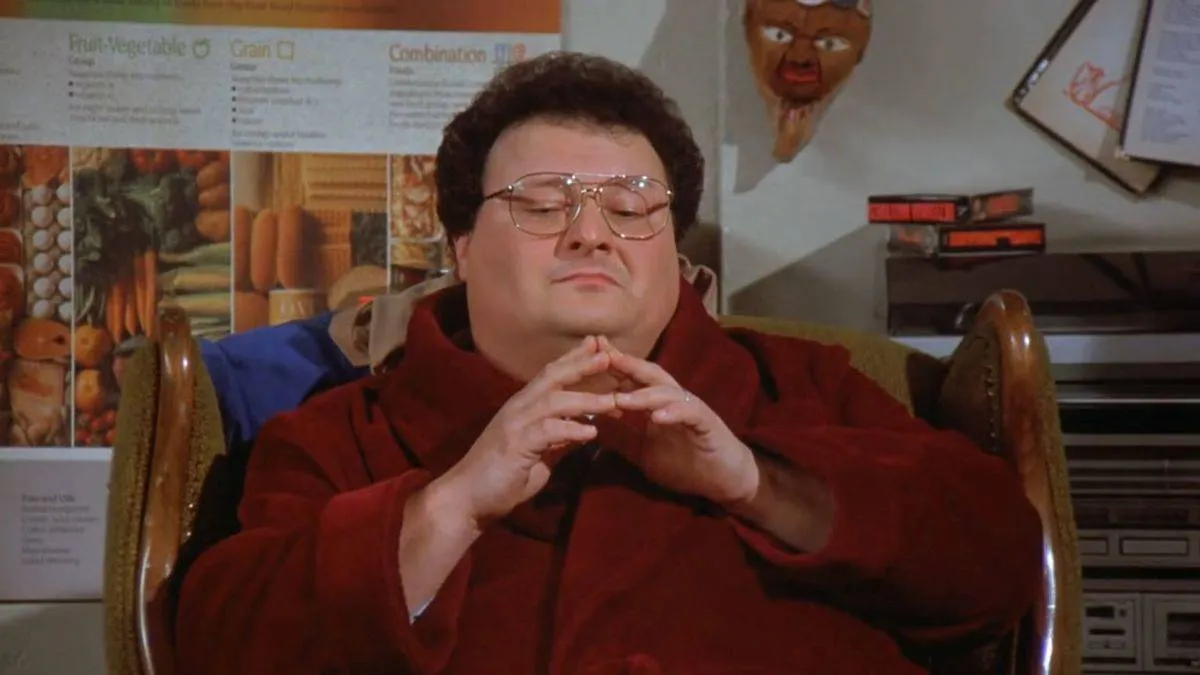
David Berkowitz, otherwise known as Son of Sam, was a notorious serial killer in New York City that Seinfeld references several times throughout the show through the character Newman. Not only do they slightly look like each other, but they both work as NYC mailmen.
Further references include when Newman is involved in a dog kidnapping (Berkowitz claimed his neighbor's dog told him to do it), and when the police knock on his door, Newman asks, "What took you so long?" which were almost the exact words as the killer.
What's Newman's Name?
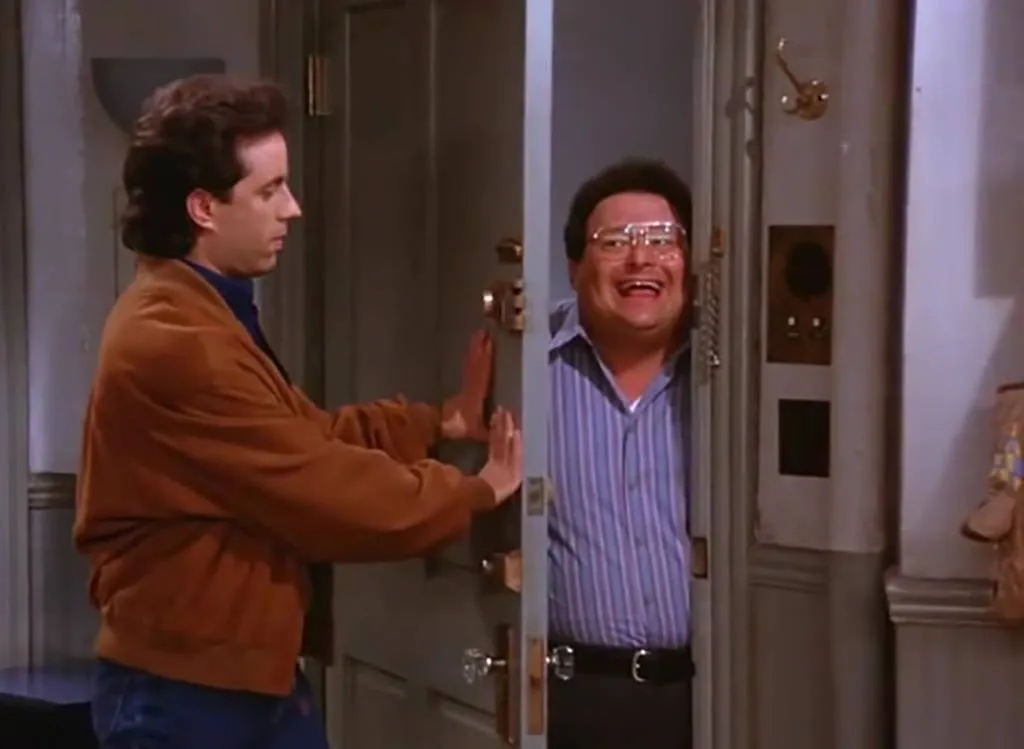
Newman the mailman was as close as the show came to ever having an antagonist, at least in the case of Jerry. Fans are all familiar with the timeless line "Hello, Newman," although we never actually learn anything about the character, which leaves a lot up to the viewer.
By the end of the show nobody is ever even sure if Newman is the annoying mailman's first or last name! Because it definitely could be one or the other!
The Callback Of Plan 9
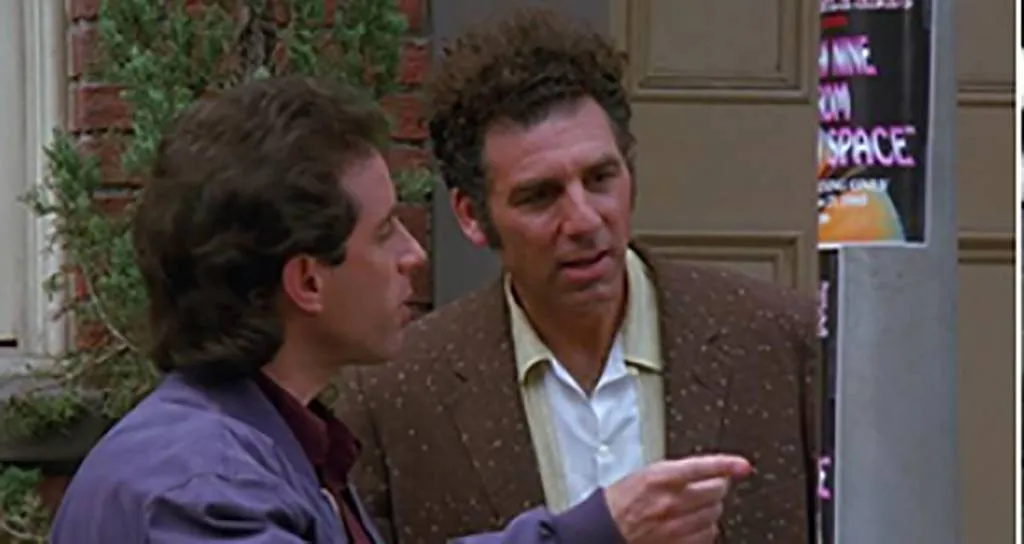
There's no denying that Seinfeld likes their callback jokes, with one of them spanning a whole five years! During the Season 2 episode "Chinese Restaurant," Jerry, George, and Elaine make plans to go see Ed Wood's so-bad-it's-good science fiction film Plan 9 from Outer Space but end up missing it.
Fast forward five years later in Season 7, Jerry and Kramer stumble upon an ad for another showing of the film with Jerry mentioning that he was supposed to see it once.
A Nod To Jerry's Racing School
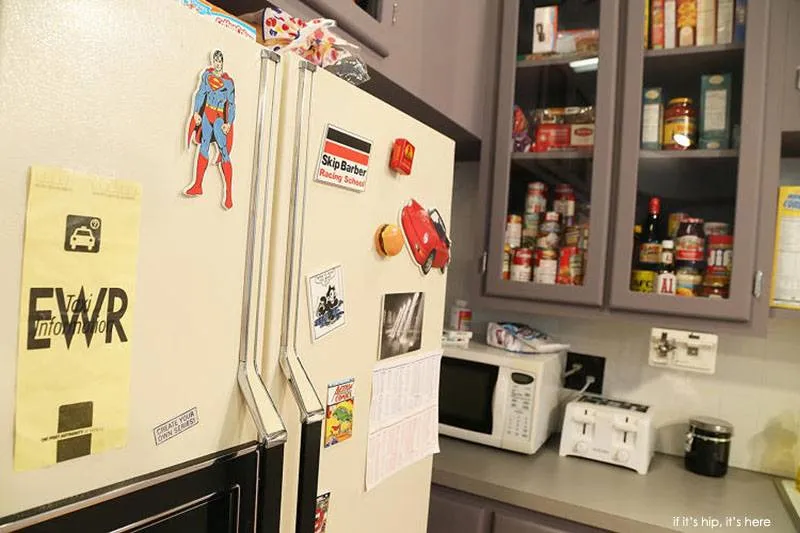
It's no secret that Jerry Seinfeld loves his cars, with Seinfeld having an extensive luxury car collection in real life. In 2016, he even auctioned some of his Porsche collection for $22 million!
His obsession with cars isn't anything new either, and he let his passion for them lie in plain site on the show. On Jerry's fridge, there is a Skip Barber Racing School magnet, which is the real race car driving school that Jerry actually attended.
An Interesting Collection Of Movies And Videogames
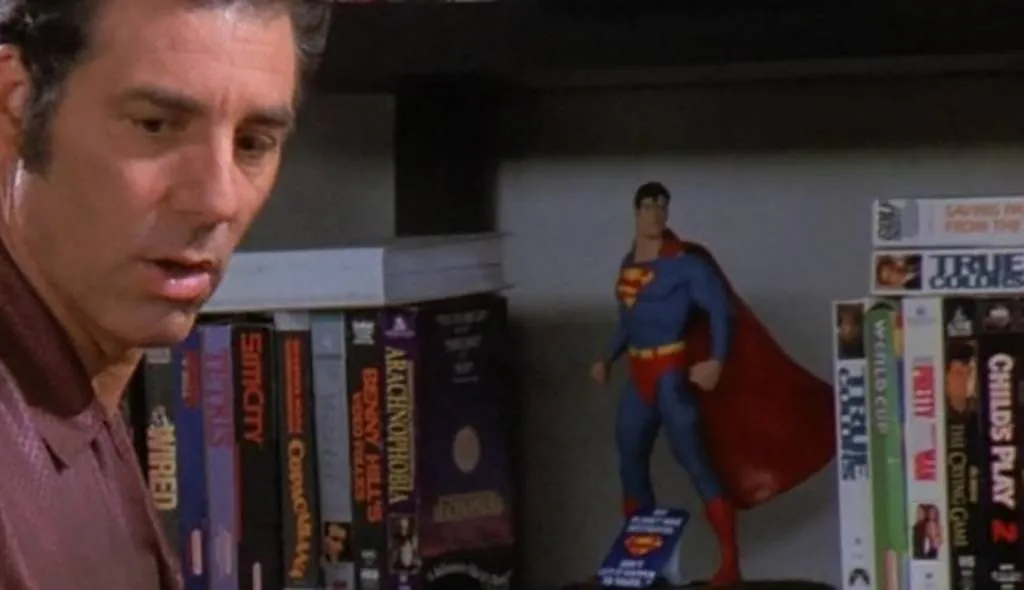
Although it would make sense that a man of Jerry's age would own VHS tapes, of course, few things in Seinfeld don't serve meaning. If you look at Jerry's movie collection, you may notice that he has quite a few horror movies as well as a copy of Pretty Woman, which Jason Alexander co-starred in.
Strangely enough, he also has a collection of videogames for Nintendo and Super Nintendo, although we never see either of the consoles.
The Opening Was Different In Every Episode
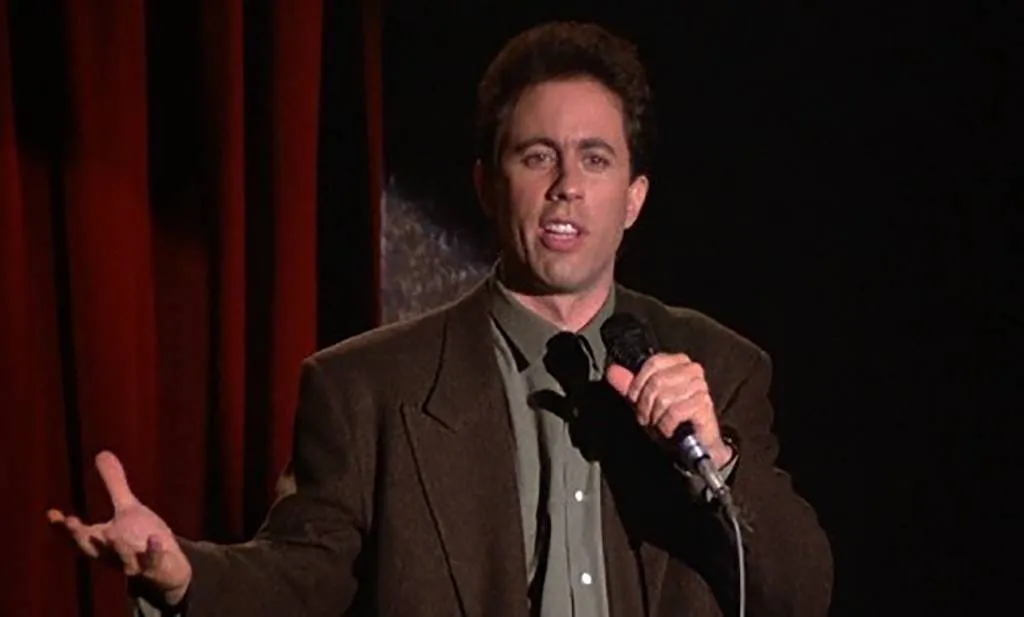
Made up of mostly bass riffs, mouth noises, and snapping, the opening theme for Seinfeld has gone down in television history as one of the most iconic. Yet, if you really pay attention, you'll notice that the theme for each episode is different.
Supposedly, composer Jonathan Wolff would tweak it every time to better fit the jokes in Jerry's opening standup routine. Although NBC wanted to change it, show creator Larry David wouldn't let it happen.
An Inside Joke About Mike
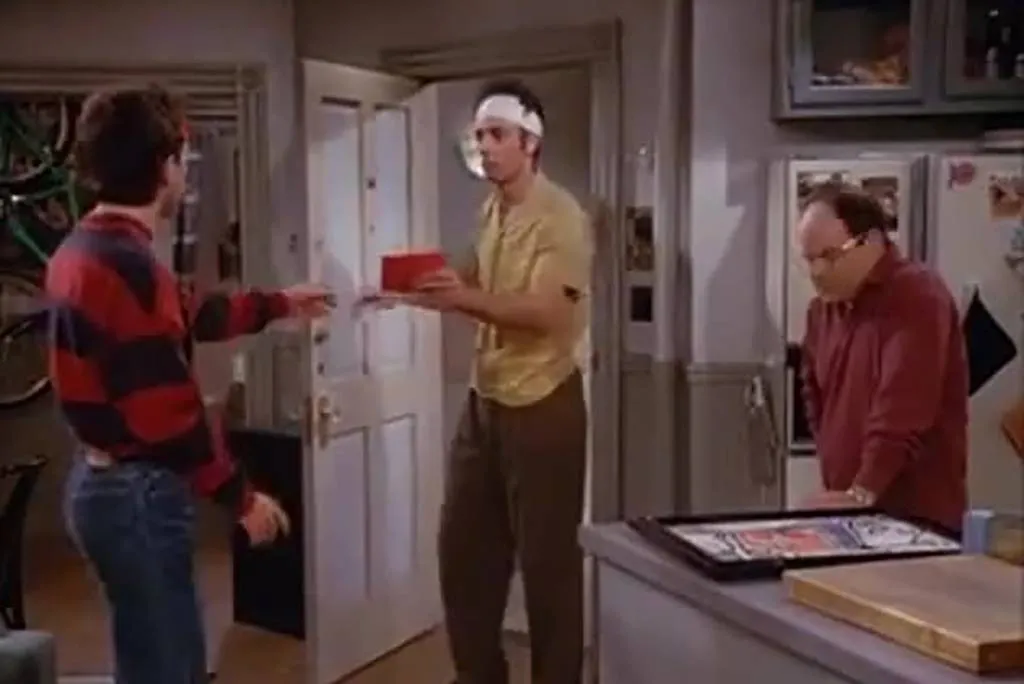
In Season 3's "The Letter," Kramer gets hit in the head with a ball at a Yankees game that leaves him a little more than confused. At one point, he comes into Jerry's apartment and greets George saying "Hi Mike." While most viewers might just assume this is a joke to show his disorientation, it could be more than that.
Although Larry David claims that George Costanza was based entirely on him, the character is most likely also influenced by his friend, Mike Costanza. So, when Kramer says this, it could be a reference to the actual Mike.
Jerry Has An Unusually Laid Out Apartment
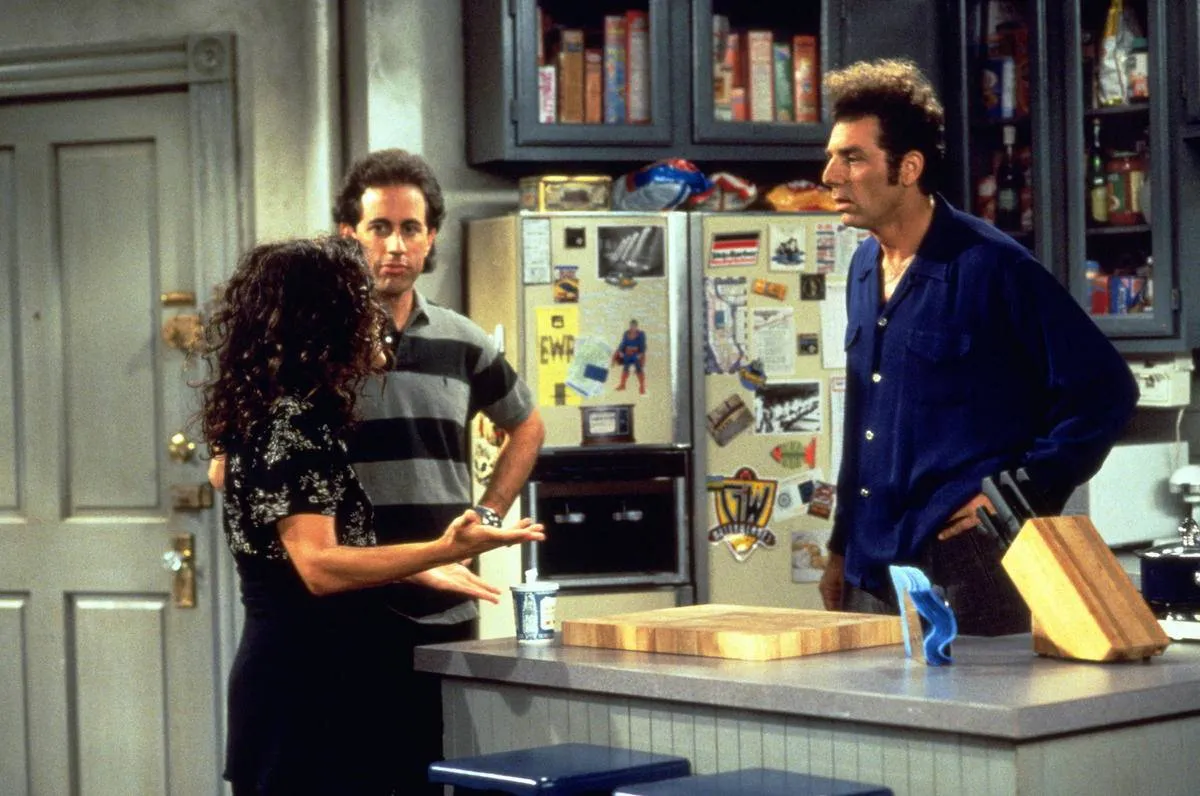
Besides Monks Cafe, Jerry's apartment is the space where the gang gets together the most. Of course, for the sake of television, Jerry's apartment is laid out perfectly so everyone can be in the same place at once.
This means that Jerry's kitchen is to the left of the front door and deep into the apartment. However, when they are standing on the other side of the wall in the hallway, there's nothing jutting out into the hall where the kitchen should be.
The Final Callback
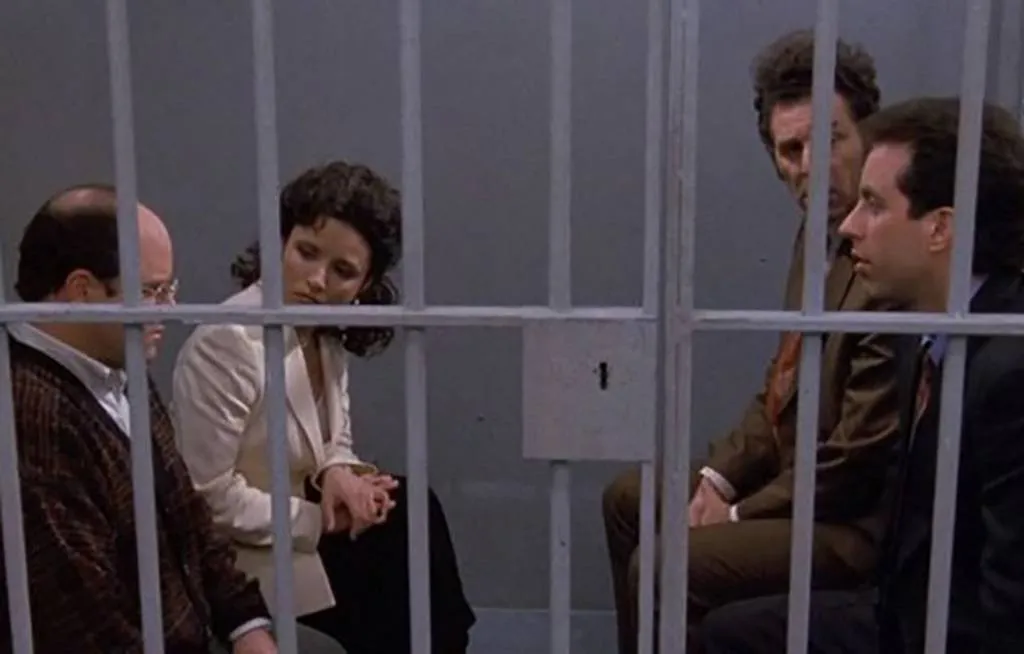
Although everybody has their own opinion about the final episode of Seinfeld, it was undeniably entertaining with all of the cameos from past characters such as Babu Bhatt, Jackie Chiles, and more.
The episode also contained the final callback of the show that only diehard fans might catch. The first episode of the show, "The Seinfeld Chronicles" kicks off the series with a meaningless conversation about button placement with the final episode of the show doing the same before fading to black.
A Real Super-Cameo
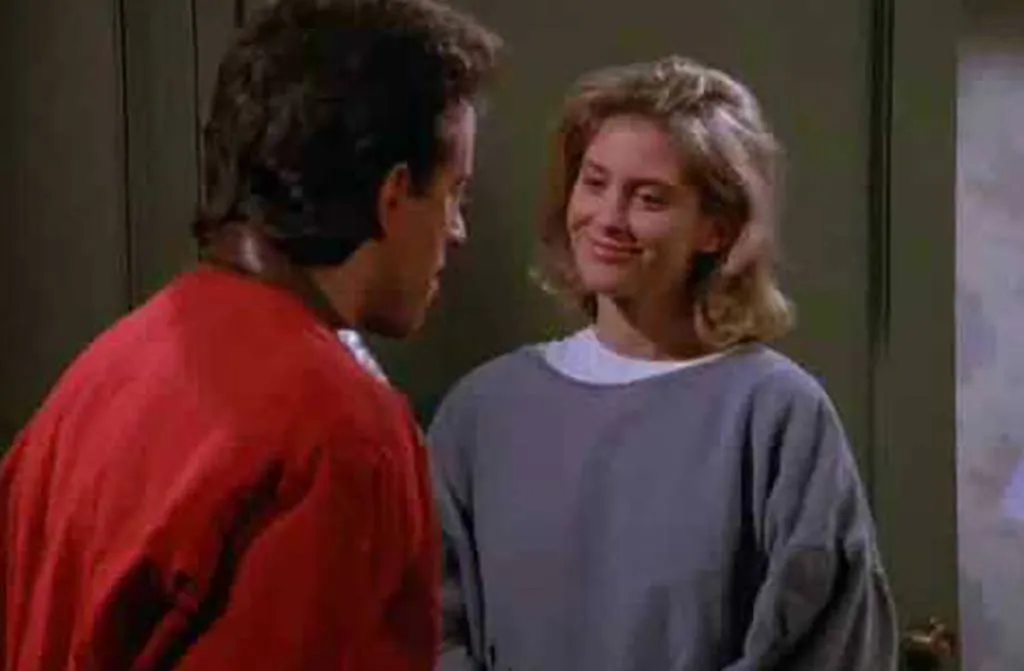
The countless Superman references throughout Seinfeld are so obvious that even most novice viewers are able to pick up on it relatively quickly. Nevertheless, there is one Superman cameo that most likely went over most people's heads.
In the Season 3 episode "The Good Samaritan," Jerry sees the girl he's infatuated with hit another car, leading Jerry to debate telling the girl who owns the car he knows who hit it. When he finally decides to, he approaches the woman who is acted by Helen Slater, who made her film debut in the 1984 film Supergirl.
Kramer Almost Never Says "Yes"
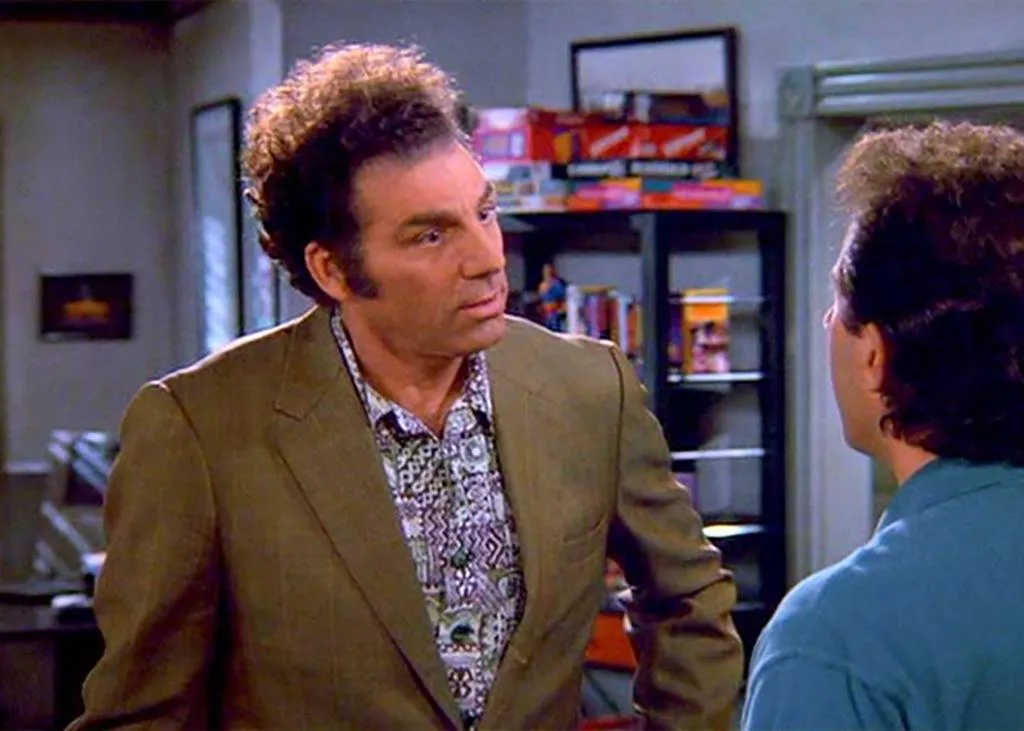
There's a reason that Cosmo Kramer is hailed as one of the most identifiable and memorable characters in television. He's so animated that it's out of this world, he's always up to something, and it's hard to not even look at him without laughing.
The cherry on top is that in all nine seasons of the show, Kramer almost never just says the word "yes." Except for six exceptions, he always agrees to something using some other string of words.









